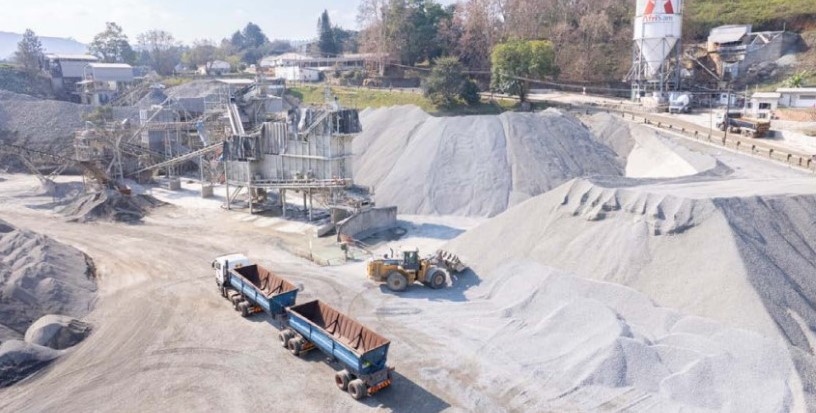The Cement and Concrete School of Technology (CCST) is an important cog in the concrete industry’s development providing specialised courses designed
The Cement and Concrete School of Technology (CCST) is an important cog in the concrete industry’s development providing specialised courses designed to equip professionals with the skills and knowledge necessary to excel in the field.
Concrete’s properties are influenced by numerous factors, including mix design, curing conditions and the environment in which it is used. Without proper knowledge, mistakes in production or application can lead to costly failures, structural defects or safety risks. For anyone aspiring to enter the building profession, a qualification in concrete and cement ensures technical competence and provides a competitive edge in the job market.
The South African construction industry faces a significant skills gap, with a high demand for qualified technicians, supervisors and engineers. This makes formal training more critical and merges with programs offered by CCST to address this gap by providing hands-on and theoretical knowledge. This is designed to ensure participants are well-prepared to handle real-world challenges.
CCST’s programs cater to a wide range of professionals, from entry-level workers to seasoned engineers. Here’s an overview of the key courses:
- Introduction to Concrete (SCT10)
- Duration: 2 days
- Who Should Attend: Entry-level construction workers, general labourers and new entrants.
- Key Topics: Basics of cement and concrete, concrete mixing and curing, quality control and safety.
- Concrete Practice (SCT20)
-
- Duration: 4 days
- Who Should Attend: Foremen, clerks-of-work, technicians, supervisors, sales and technical staff.
- Key Topics: Properties of concrete at all stages, mix proportions, production, curing, formwork, reinforcement, joints and repairs.
- Batch Plant Management
-
- Duration: Variable
- Who Should Attend: Batchers, supervisors, laboratory staff and plant personnel.
- Key Topics: Quality control, material properties, mix design basics and plant management.
- Concrete Industrial Floors on the Ground (SCT21)
-
- Duration: 1 day
- Who Should Attend: Contractors and engineers specialising in industrial floors.
- Key Topics: Floor design, subgrade preparation, joint detailing and curing techniques.
- Concrete Road Design and Construction (SCT22)
-
- Duration: 1 day
- Who Should Attend: Civil engineers with road design experience.
- Key Topics: Pavement types, mix designs and reinforcement.
- Concrete Technology (SCT30)
-
- Duration: 5 days
- Who Should Attend: Engineers, technicians and technologists with prior experience.
- Key Topics: Advanced concrete properties, specialised mix designs and architectural finishes.
- Durability of Concrete (SCT37)
-
- Duration: 1 day
- Who Should Attend: Engineers and foremen involved in durable concrete production and placement.
- Key Topics: Permeability testing, mechanical and chemical deterioration and durability techniques.
Courses are available throughout the year, both online and in person. For 2025, early enrolment is encouraged, as spots fill quickly. Participants can register on the CCST website and take advantage of discounts for bundled courses. Go to www.ccst.org.za
Beyond technical expertise, CCST’s qualifications prepare professionals to meet industry standards and contribute to quality assurance. With increasing government oversight and the need for sustainable practices, skilled concrete technologists are in demand to optimise materials, reduce waste and ensure environmental compliance.
The construction industry’s future depends on a workforce that values knowledge and innovation. By investing in a qualification from CCST, professionals can enhance their skills as a batcher, supervisor or engineer.


COMMENTS